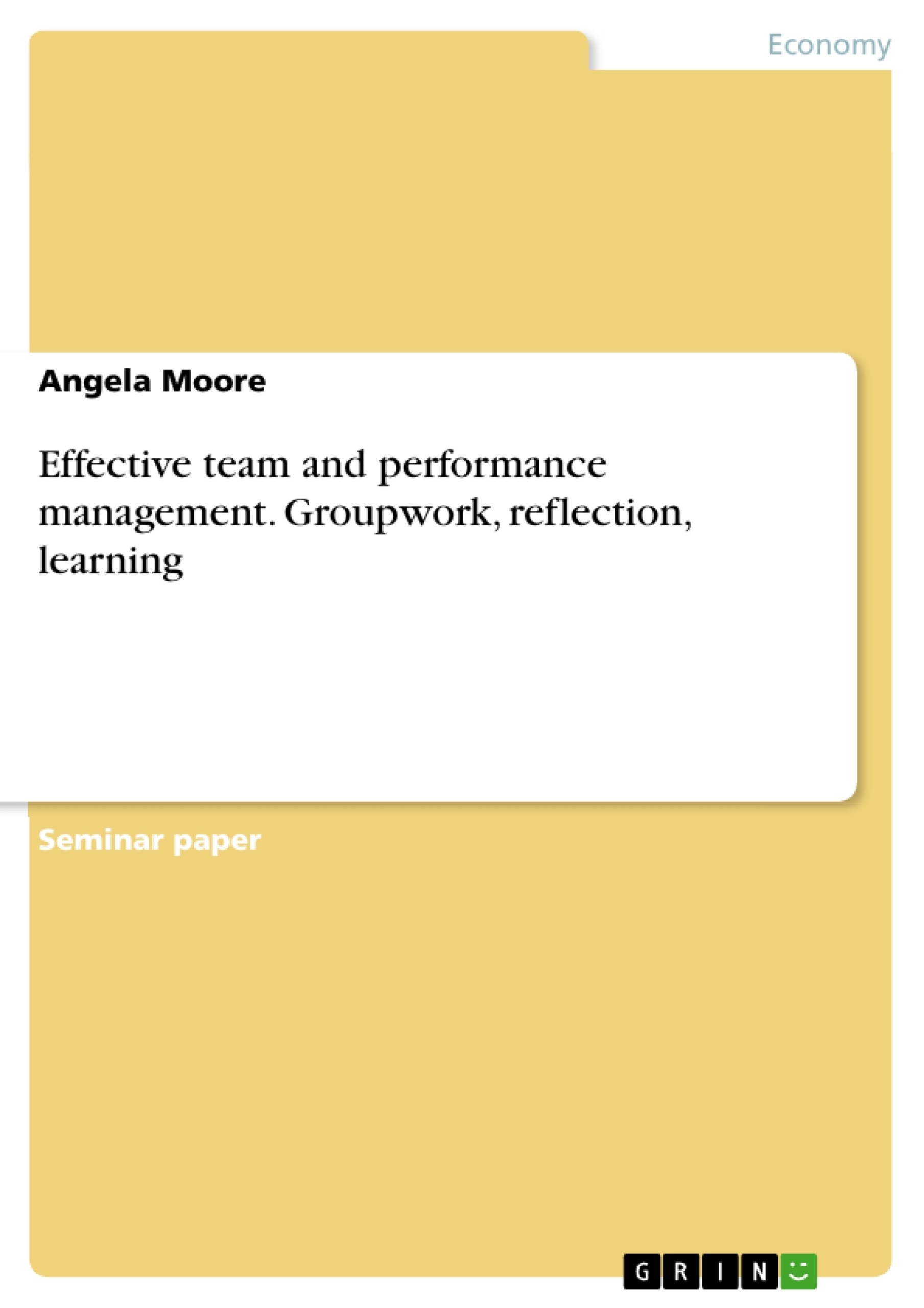The changing workplace and the strains that are inherent in organizations as a result of the increased responsibilities and little time make work stressful. Organizational life becomes unbearable if individuals have to work independently to accomplish organizational goals. This, coupled with the increasing competition as a result of the globalized world makes it difficult for organizations to work basing on the efforts of a single individual. Work has to be completed on time and reports have to be made that define the direction of the organization. Individual effort and thinking is not so productive in this scenario necessitating the formation of groups or teams. Workplace teams have made life easy for organizations with many of them now opting to use teams to carry out most of their tasks. The advantages that teams bring to the organization cannot be overemphasized. Those organizations that are still not using teams will always be left behind in this competitive environment. The idea behind team formation is that it increases productivity and makes it easy for work to be done faster due to the contributions that are made by many people. Innovativeness and creativity in groups is high and thus people are able to share ideas that will eventually lead to a solution to a given organizational problem. However not all people work well in groups or teams and this has also been another issue when dealing with teams. Some people prefer autonomy in order to work better. On the other hand it is also good to note that as much as these teams help organizations achieve results, team formation and development is a difficult phenomenon and one that is faced with a myriad of problems. The way these are solved determines that effectiveness of the group.
Table of Contents
- Introduction
- Reflection
- Personal Traits
- Group Dynamics and Challenges
Objectives and Key Themes
This text examines the author's experiences with team formation and performance in an educational setting. It explores the challenges of working with a diverse group, the role of individual personality traits in group dynamics, and the impact of Tuckman's stages of group development on team effectiveness.
- Team Formation and Diversity
- Individual Personality Traits and Group Dynamics
- Tuckman's Stages of Group Development
- Group Cohesion and Conflict Resolution
- Effective Team Leadership
Chapter Summaries
- Introduction: This chapter introduces the importance of teamwork in modern organizations and highlights the challenges associated with forming and managing effective teams. It emphasizes the need for teamwork in a competitive environment, but acknowledges that not all individuals work well in groups.
- Reflection: This chapter delves into the author's personal experience in forming a diverse group for a study project. It discusses the difficulties in bringing together individuals from different cultures and the importance of managing potential conflicts. The author utilizes the Myers Briggs Type Indicator test to analyze the group's personality profiles and addresses the challenges of diversity in teams.
- Personal Traits: This chapter focuses on the author's own personal traits and their impact on group dynamics. The author identifies their strengths as being creative and influential and shares an example of how these traits contributed to finding a solution to a group task. The author also reflects on the importance of effective team leadership and discusses the potential challenges associated with dominant personalities.
- Group Dynamics and Challenges: This chapter examines the group dynamics and challenges encountered during the study project. The author discusses the impact of group cohesion, conflict resolution, and Tuckman's stages of group development on the team's effectiveness. The author analyzes the difficulties arising from differing individual goals and discusses the need for balancing individual contributions while striving for collective success.
Keywords
Key terms explored in this text include teamwork, team formation, diversity, individual personality traits, Tuckman's stages of group development, group cohesion, conflict resolution, effective leadership, and team performance. These keywords are central to understanding the challenges and strategies involved in fostering effective and successful teams.
Frequently Asked Questions
Why is teamwork essential in modern organizations?
Teams increase productivity, allow for faster task completion, and foster higher levels of innovativeness and creativity in a competitive global market.
What are Tuckman's stages of group development?
They are a framework describing the phases teams go through: forming, storming, norming, performing, and adjourning, which impact overall effectiveness.
How does personality influence group dynamics?
Individual traits, such as those measured by the Myers-Briggs Type Indicator (MBTI), affect leadership, communication, and how conflicts are resolved within a team.
What are common challenges in team formation?
Challenges include managing diversity (cultural and personal), dealing with dominant personalities, and aligning individual goals with collective success.
What is the role of effective team leadership?
Leadership is crucial for balancing individual contributions, resolving conflicts, and guiding the group through the various stages of development to achieve goals.
- Quote paper
- Angela Moore (Author), 2011, Effective team and performance management. Groupwork, reflection, learning, Munich, GRIN Verlag, https://www.grin.com/document/270024



